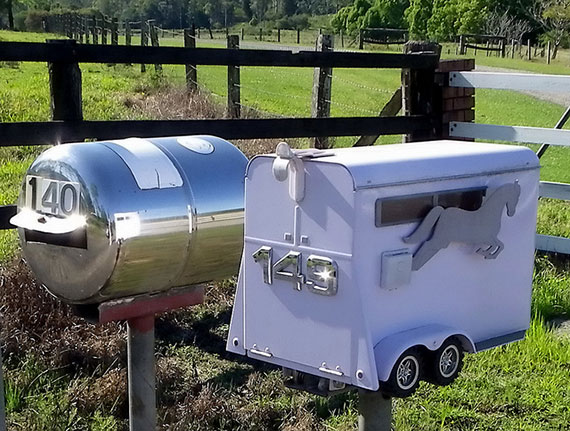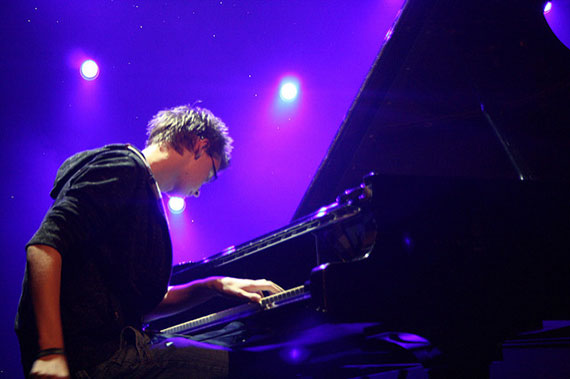Over the years of learning about photography, certain lessons stick out in my mind. One of these was the Mailbox Assignment. The assignment was simple: take 36 shots of a mailbox. It had to be the same mailbox. Oh, and by the way…each shot had to be unique. Sounds easy enough, right? Well, let’s see, there is the front, back, left side, right side, shot from above, or shot from below. That’s six. Only 30 more shots to go.

Photo by bertknot; ISO 80, f/4.5, 1/320-second exposure.
You could shoot with the flag up or the flag down or shoot just the flag itself. You could shoot with the mailbox door open or closed or somewhere in between. Congratulations! You are now up to 12 shots! Only 24 more to go. You could shoot with a little mail in the box, or a whole lot of mail, or somewhere in between. As you can see, the first 15 or even 20 shots aren’t that hard, but they aren’t the point of the assignment.
At some point, when you have taken everything you can think of and realize that you still have half a dozen shots to come up with, something changes. You start thinking differently. You start thinking outside the box. This way of viewing things does not come easily. There may be a little frustration or even anger with yourself before you get to this point. That’s OK, as long as you push through and make it to your creative zone.
The human mind is a lot like an iceberg. What you see above the surface (the conscious mind), regardless of how massive (or intelligent) it may seem, only represents 10 percent of what’s really there. Just below the surface 90 percent of your mind (the subconscious mind) waits to be put to use. It’s within the subconscious that we find the creative zone. This is the area that allows us to perform at our very best without even seeming to think about it.

Photo by Kyle Mortara
Someone who spends hours practicing the piano can often play beautiful music without having to think about it. Is this statement true or false? While he is practicing, he is most definitely thinking about it. He is using his conscious mind. But once he steps on stage and his fingers touch the keys, what happens? Something else takes over.

Photo by UKM; ISO 1600, f/5.6, 1/125-second exposure.
Call it what you will: instinct, the law of attraction, karma, spiritual forces…they all have one thing in common. What you put in is what you get out. It’s like the great bank account of the cosmos. A person who only takes pictures once or twice a month and wonders why he or she can’t get more jobs, just doesn’t get it. If you want more, do more. If you want to get better, shoot more, LOTS more. With the advent of digital cameras, there are no excuses.
If I were starting from scratch in photography, I would do two things:
- I would read an hour a day about photography. If I had a particular interest, like flowers, I would read an hour a day about flower photography.
- I would shoot an hour a day. You don’t have to keep every picture, you don’t even have to like every picture, but you do have to keep yourself looking and learning. That’s it. Two hours a day, every day, for two years. That’s 730 hours of actual study and 730 hours of actual taking pictures. Motivation comes from doing. Inspiration comes from have done so again and again.
For those who say to themselves “but I wouldn’t know what to shoot”, that’s the point. The more you shoot, the more you know. You learn what worked and what did not. You learn what you liked and what you did not. You learn what time of day looked better and what did not. You are not going out to be the greatest photographer every day, you are going out to become a better photographer everyday.
In the example I gave at the beginning, here are some of the most memorable winners from that assignment, all of which were taken after they put hours of thought into it:
- Mailbox at sunset, door part way open, with a glowing light coming from inside. They used a candle, but shot at an angle so you could not see the source.
- Picture of mailman’s hand delivering mail from the mailbox’s perspective. They put the camera on a self timer, pre-focused the distance, and set it inside the box.
- Shaft of light, highlighting the envelope from “Publishers Clearing House” sticking out of their box. They waited until dusk, shot on a tripod, and used a light tied on top of an eight foot ladder.
The kids that only gave themselves half an hour to finish the assignment never got it. The ones who struggled and went back again and again, did. The magic of thinking outside the box is to look inside the box first. What’s inside depends on what you put into it.
About the Author:
Award winning writer / photographer Tedric Garrison has 30 years experience in photography (better-photo-tips.blogspot.com). As a Graphic Art Major, he has a unique perspective. His photo eBook “Your Creative Edge” proves creativity can be taught. Today, he shares his wealth of knowledge with the world through his website.
Like This Article?
Don't Miss The Next One!
Join over 100,000 photographers of all experience levels who receive our free photography tips and articles to stay current:





Interesting.
Some great ideas – just need to apply them!
That is a awesome idea..
So interesting ………..
Great post!
Thoroughly enjoyed this one, thanks!
What a challenging idea! I truly love the concept. What a great challenge and a mailbox of all things!